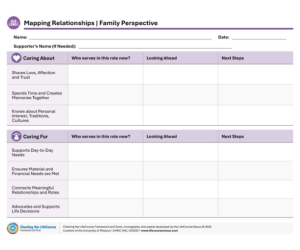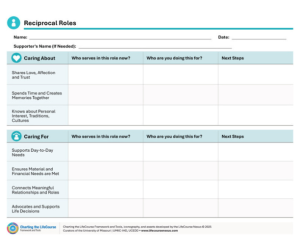LifeCourse FrameWork Principles
Recognizing the Person in the Context of Family
People exist and have reciprocal roles within a family system, defined by that individual. Roles adjust as the individual members of the family system change and age. The entire family, individually and as a whole, needs support to ensure they are all able to successfully live their good life.


